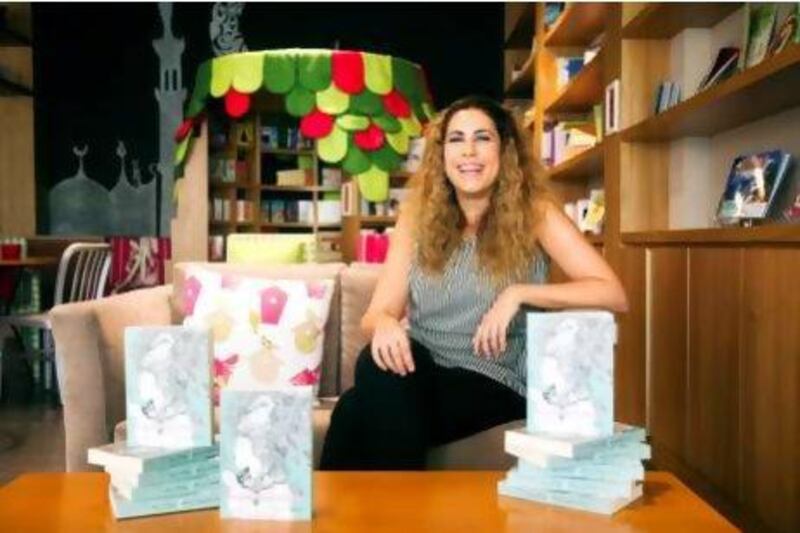On some days Rewa Zeinati assumes the role of a camel, as described by the German philosopher Friedrich Nietzsche in his book, Thus Spoke Zarathustra. Camels, he says, symbolise people burdened by rigid beliefs of a structured society.
But most of the time the Lebanese-born Zeinati finds herself being the lion, which, according to Nietzsche, defies those values and makes its own rules in the search for freedom.
When the 34-year-old Dubai-based author of Nietzsche's Camel Must Die sits down in a noisy cafe to talk about her book, she is slightly wary about the recorder on the table – and almost becomes the camel while answering some questions.
The book is a compilation of 115 Facebook notes – daily observations and thoughts on such topics as women’s rights and religion. “For some reason I started putting these notes on Facebook as opposed to a blog,” says Zeinati, who works as a senior copywriter in a Dubai advertising agency.
“At first, it was very random. In September I decided I wanted to discipline myself and write every single day. It was about sharing poetry, essays, observations in daily life and things that I remembered from my childhood,” she says.
Her posts on societal issues created a stir and comments started pouring in. “People were reading and responding to the different daily notes. When I wouldn’t write, I had people asking for them. This pushed me to put down my thoughts every single day.”
She says that initially there was no plan to write a book or publish it. “A few friends suggested it this year, so I decided to approach a publisher to put it together.”
The book, published by Xanadu, is a verbatim record of her notes until January 17 and provides an intimate, non-linear account of her experiences in Lebanon, the US and the UAE.
Zeinati grew up in Abu Dhabi, then moved back to Beirut for her higher education. There she discovered the power of the written word in her English literature course. Her passion for writing took her to the US in 2002, where she completed a programme in creative writing. She met poets and writers who had the same passion and egged her on to share her essays and poetry. Four years ago, her longing to be closer to home brought her back to the UAE.
In her notes, which are quick to read and can be picked up from any point in the book, Zeinati debates rigid belief systems and questions gender stereotypes, using humour to defuse some of the uneasiness associated with such topics.
“I talk a lot about my family. There is a lot of childhood in there as well and how you see things through a kid’s perspective,” she says. “But it also talks about things I’ve read in the news. I try not to give an opinion politically, but it is more on social criticism, women’s rights and a lot of those infuriating aspects that drive me to write, rant and obsess.”
Zeinati admits a lot of her writing borders on cynicism shaped by life experiences such as her divorce and new marriage. “When I decided to get married to my current husband, who is from a different religion, that was a bit of a challenge. I got into some clashes with the families. We had a civil marriage in Cyprus, which is another thing a lot of families in Lebanon don’t believe in and are against, since they think it is not ‘blessed’ or ‘valid’ enough. Neither mine, nor his.”
She adds: “That is when I decided to stop being the camel.”
Zeinati has also been influenced by the work of Joumana Haddad, a poet and women’s rights activist from Lebanon, who wrote the foreword of her book. “I admire her on many levels, as a woman, a thinker, an activist, a teacher,” says Zeinati.
Other writers who inspire her include Naomi Shihab Nye, Charles Bukowski, Mahmoud Darwish, Etel Adnan and Mark Strand. “Even some local poets inspire me tremendously.” She immediately adds that she isn’t trying to influence readers, but wants to allow them to find commonalities in her “confusion”.
“I was trying to say what I had in mind and that people are allowed to change their mind and opinions,” she says. “I am definitely confused and continuing in that confusion to figure things out.”
She says she’s working to attain that final stage of Nietzsche’s metamorphoses – a child who creates a new peaceful life after struggle. “I have made writing my tool, in the meantime.”
Follow us
[ @LifeNationalUAE ]
And follow us on Facebook for discussions, entertainment, reviews, wellness and news.





